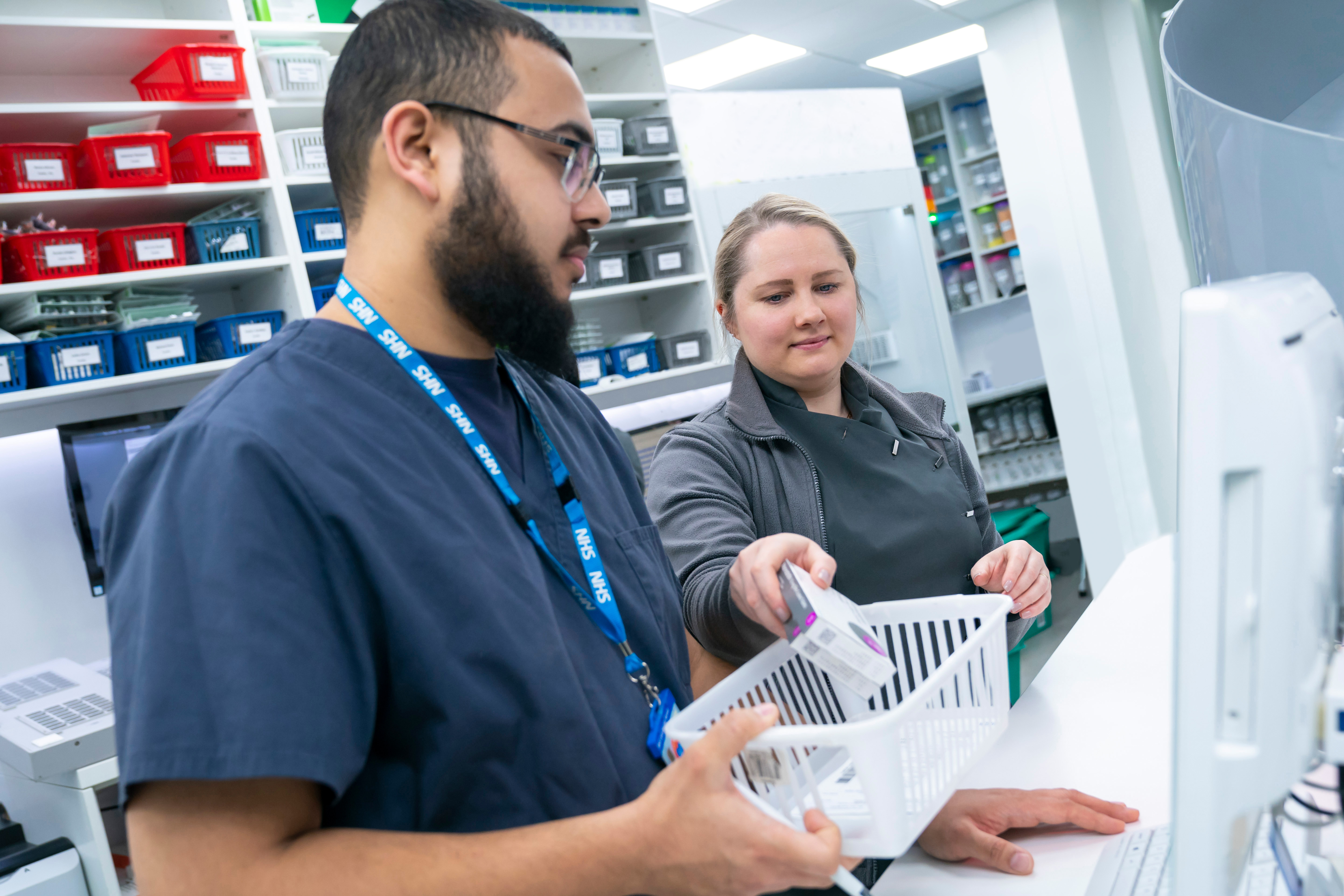
Applying for foundation trainee placements using Oriel
A brief guide for pharmacy students and trainee pharmacist applicants who would like to apply for a foundation training placement in England, Scotland or Wales using Oriel.

This page contains information for non-EEA pharmacists who wish to register in Great Britain.
Are you trained and registered as a pharmacist in a non-EEA country and want to register and work in Great Britain as a pharmacist? If so you will need to apply to the Overseas Pharmacists’ Assessment Programme (OSPAP). The training consists of one year at university, followed by 52 weeks of training prior to joining the General Pharmaceutical Council (GPhC) register. Here are the things you will need to consider if you want to apply for the OSPAP.
If you are accepted on the OSPAP you can apply for a student visa during the first year of your training. Once you have graduated you will then need to switch to a work visa in order to complete your foundation training. You can find out more about applying for a student visa here.
Your degree will need to be recognised as being equivalent to, or better than a UK bachelor’s degree. If you are unsure as to whether your degree will be recognised, you can contact UK ENIC for confirmation. UK ENIC is the only official source of information on international education and qualifications and skills attained outside the UK. Visit their website for a full list of services.
If your degree is not recognised as equivalent to a UK degree, you may have to provide additional information to the GPhC. Contact the GPhC directly for further advice on documentation needed.
As part of your application the GPhC will check you meet the English language requirements. You can choose from the following three options.
The government website lists the countries defined as ‘majority English speaking’.
Download the GPhC guidance on evidence needed of English language skills here.
The British council have a range of online practice tests that you can use to help you to prepare for the test. Doing practice tests will help to familiarise you with the IELTS computer system in advance of taking the test. Download free practice IELTS tests on the British Council website.
OET has a Ready Study Guide. This guide includes courses, guides, videos and sample tests. Request your free OET study guide here.
Oriel is a portal used for the recruitment of a variety of healthcare professions. All pharmacy foundation placements will be advertised via Oriel. The GPhC will only approve your placement if it has been allocated through Oriel. You should make an application using Oriel before you begin your first year of the OSPAP so that you can begin your foundation training when you complete your course. Ask your university for regular updates about the Oriel recruitment programme opening dates.
Find out more about using Oriel here
Once you have completed your university course you will be ready to begin your foundation training. Your foundation training placement consists of 52 weeks of supervised and assessed training at a GPhC accredited training site. You will be paid whilst you are training. During your training year, you will need to have satisfactory progress reports at week 13, 26, 39 and 52.
At the end of your foundation training and subject to achieving satisfactory progress reports, you will be ready to sit the registration assessment exam. If you pass the exam, you will then be able to register with the GPhC. Download the GPhC foundation manual here.
If you are accepted on the OSPAP, you normally have two academic years in which to begin your training. You must join the register within four years of starting the OSPAP. If you need longer than this to complete your training, you will need to apply to the GPhC for an extension under the four year rule.
Once you have started your course, if you are struggling financially due to something unexpected that you could not have planned for, we would expect you to first approach your university for financial help before applying to Pharmacist Support. If you still do not have enough income each month you can apply to us for financial help towards essential living costs during the academic year. OSPAP Students can apply for a grant of up to £1,500 to help with evidenced financial difficulty in meeting rent payments, buying food, travel costs to get to university or pharmaceutical reference books.
Please note: We are not able to help with tuition fees, legal fees or visa costs.
Information about financial help for students and how to apply can be found here.
If you are a refugee, you might be able to access funds for tuition fees using Refuaid. Over 80 universities offer scholarships, bursaries and fee waivers for people who have claimed asylum in the UK. Each scholarship has different eligibility criteria, application deadlines, and levels of financial support. Visit the STAR website for a full list of universities who offer scholarships.
Find out more about the OSPAP here
This webpage was reviewed in July 2024.

A brief guide for pharmacy students and trainee pharmacist applicants who would like to apply for a foundation training placement in England, Scotland or Wales using Oriel.

This page contains information about visa requirements for international students who have finished their MPharm or OSPAP and want to begin their foundation training.

This page gives information and advice about everything you need to do to be ready for the registration assessment.